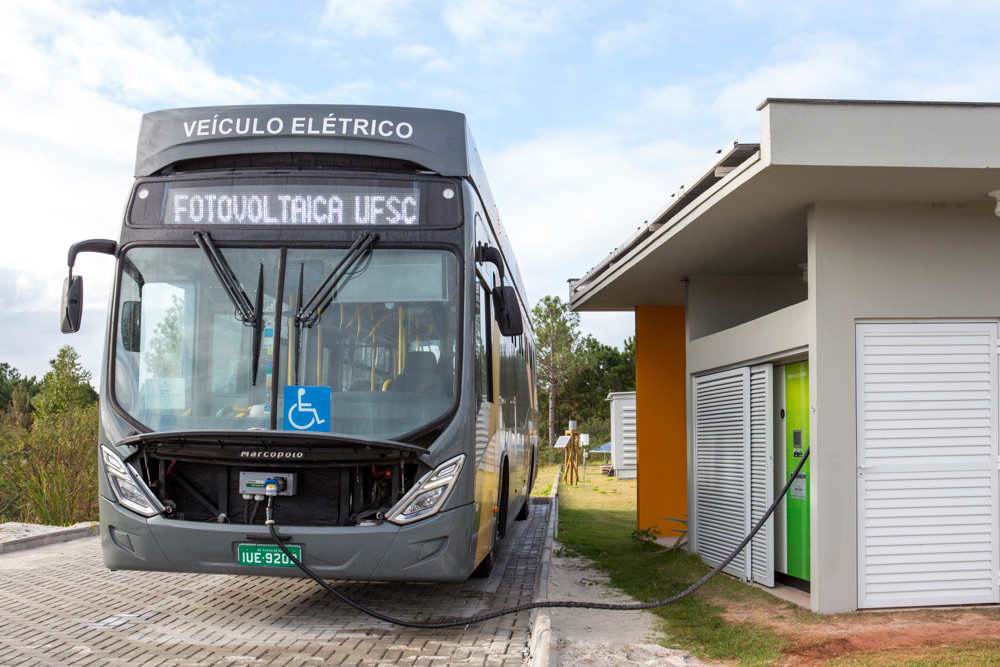Transformative Urban Mobility Initiative (TUMI) Together for a better mobility future
E-bus charging station in Florianópolis, Brazil
Its central focus is on promoting climate-friendly, safe, inclusive and affordable urban mobility that will allow all population groups to participate in social and economic activities by providing them with access to a means of transport to work, health care and education facilities. People who live on the outskirts of a city or in the slums are often hardly able to reach many areas of the city which have no functioning local public transport networks or safe footpaths and cycle paths.
With TUMI, the BMZ is promoting the modernisation of sustainable urban mobility. For example, more than two billion euros has been invested in projects like expanding the public transport networks in Rio de Janeiro, Tunis and Nagpur. Furthermore, TUMI is supporting innovative pilot projects in selected cities all over the world, such as bike sharing, setting up pedestrian zones or electrically operated transport vehicles.
The global project TUMIVolt is supporting the introduction of sustainable electro-mobility by cities of the Global South. The BMZ is thus fostering the use of renewable energies in the transport sector worldwide, with the aim of reducing greenhouse gas emissions. Moreover, TUMIVolt takes into account all aspects of e-mobility, such as producing and recycling batteries, recharging infrastructure and financing strategies, with a view to improving planning capabilities at the policy and the administrative level.
With the initiative “Women Mobilize Women (External link)”, TUMI is addressing the special opportunities and challenges for women in the transport sector. That includes empowering women decision-makers, gender-equal transport planning and safety in public spaces.
As at: 27/09/2022
